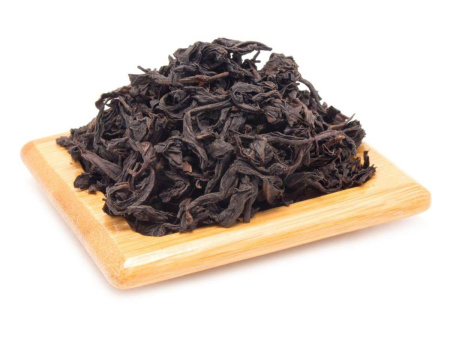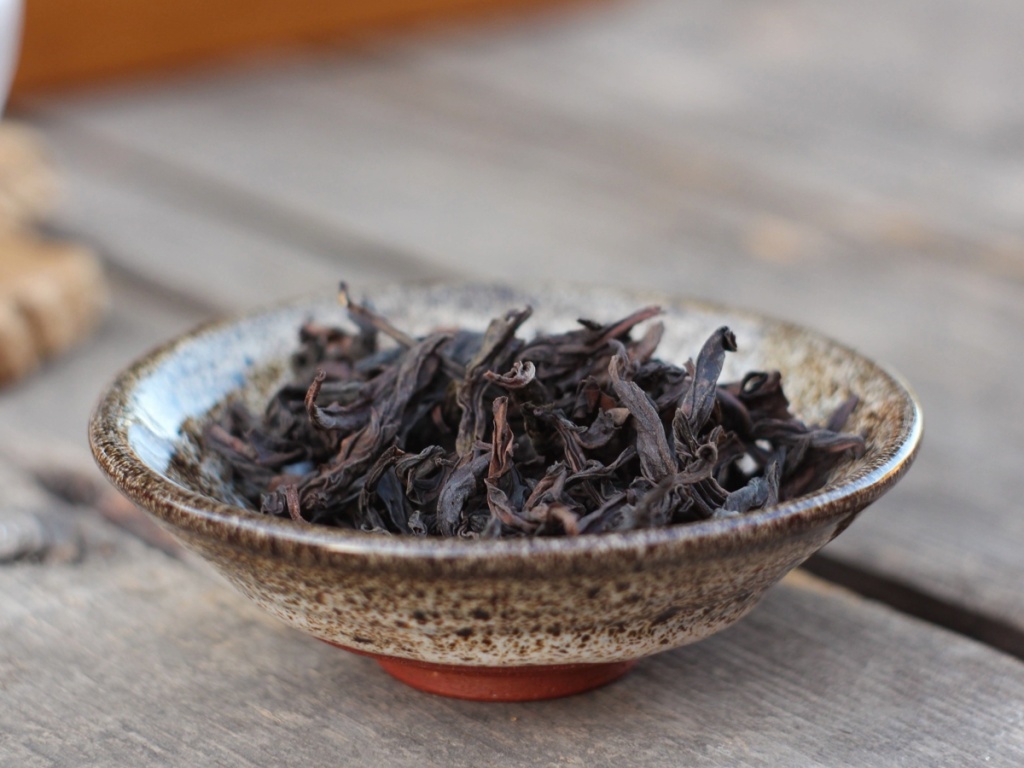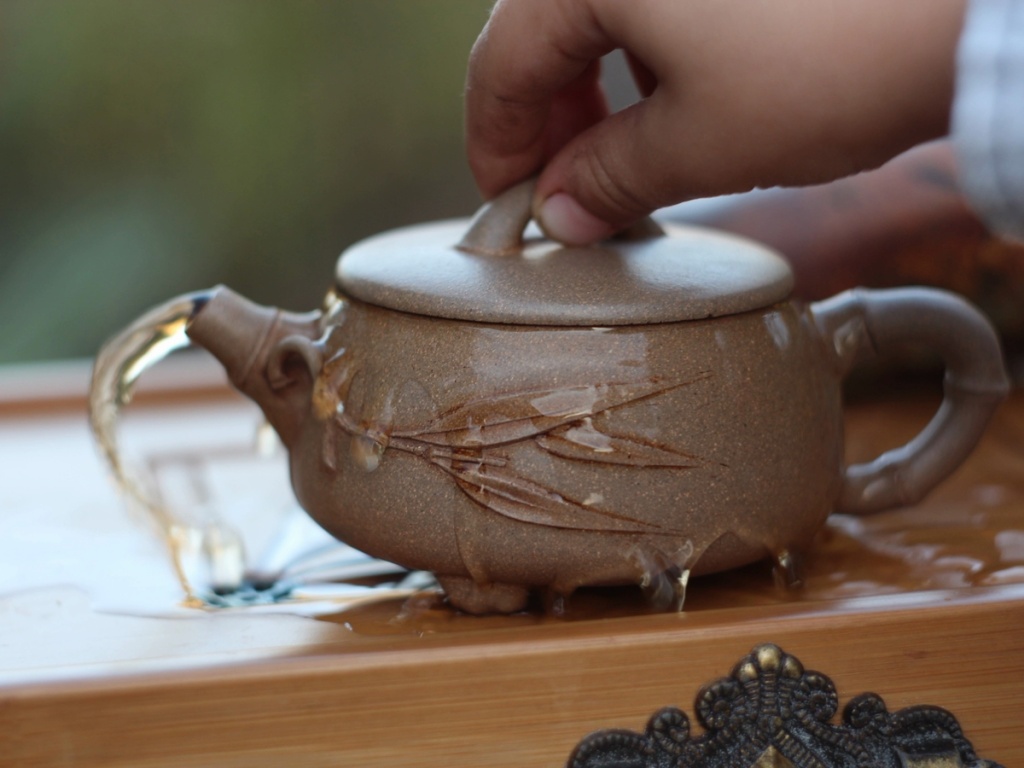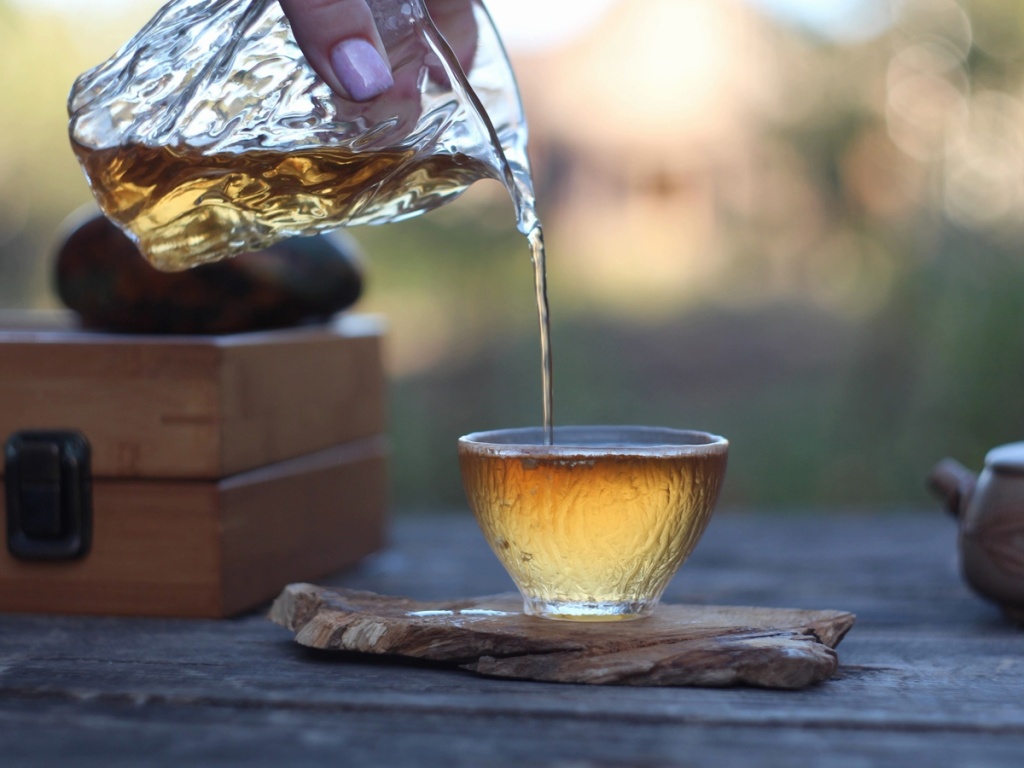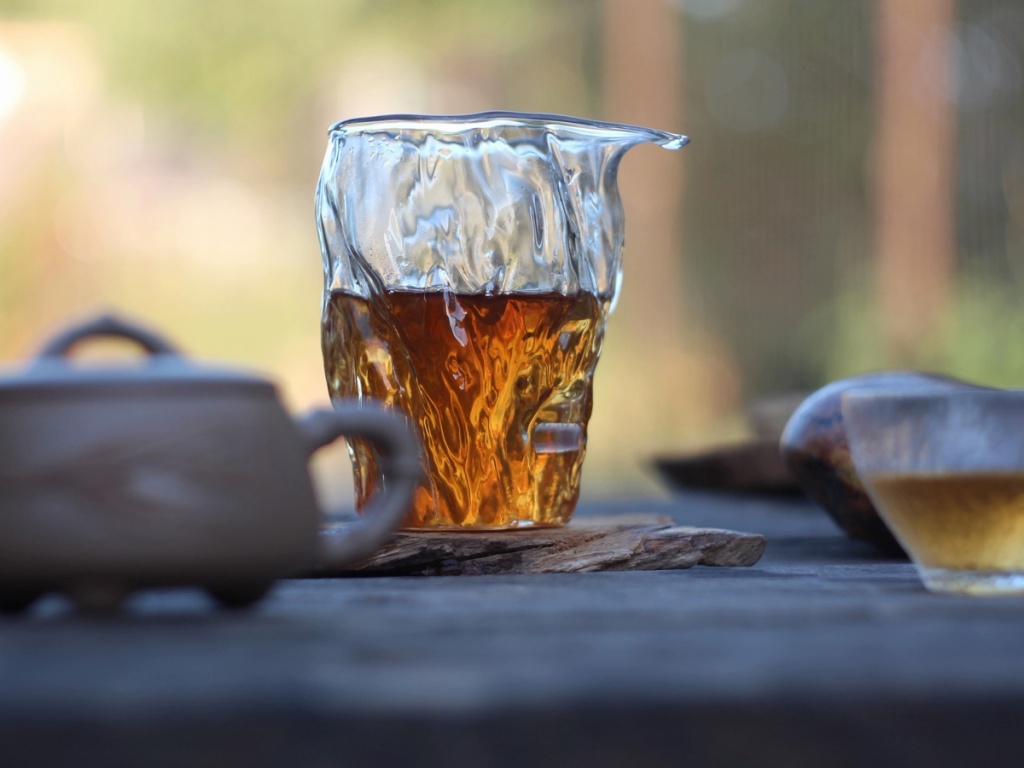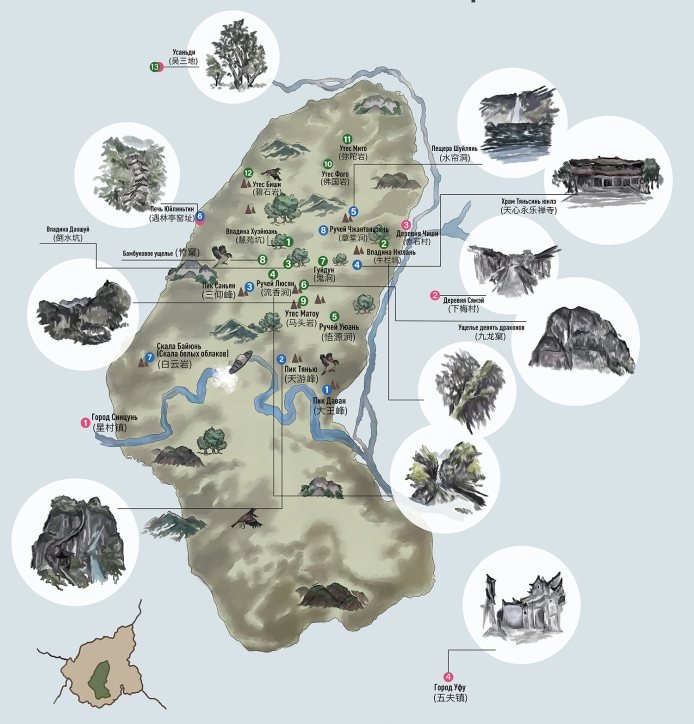-
10 Saturation
-
10 Aftertaste
-
10 Aroma
-
10 Effect
-
10 Balance
-
10 Body
Tie Luohan is one of the most ancient cliff teas, classified as a highly fermented, premium oolong. It grows in the Wuyi Mountains region of northern Fujian Province, amidst cliffs, sheer rock faces, deep ravines, and spacious valleys. The tea is grown on specially constructed terraces in rock crevices and fissures, in all the cliff openings. These places are called "potted" gardens (盆栽式茶园, pen-zai shi cha yuan). Tie Luohan is produced from the tender leaves of the Tie Luohan tree variety, which grows on Huiyuan Cliff (慧苑岩) in the Inner Demon Cave (内鬼洞, also known as Honey Den). In this gorge, the rock walls almost meet and only a small stream flowing along provides the plants with all the necessary moisture.
The tea takes its name from the Arhats, figures in the Buddhist pantheon. These are people who have attained the highest spiritual development and fulfill the will of the Buddha, capable of reaching his abode at any moment.
According to one legend about the Iron Arhat's appearance, a monk named Ji Hui lived in the Wuyi Mountains on the grounds of the Huiyuan Buddhist monastery (translated as "Garden of Insight"). He devoted his entire secular life to growing tea, and continued to do so even as a monk. His tea was known for its ability to bring peace to the soul, clarify the chakras, and fill the body with energy after just a few sips. The locals immediately fell in love with this tea, and one day, when the monk attained enlightenment (the state of an arhat), he revealed to them his secret of making it, the intricacies of processing and harvesting. He then departed this mortal coil, and the grateful farmers named the tea variety after him. The Iron Arhat symbolizes the strong character and steadfastness of a monk who has succeeded in both spiritual and secular life.
Wuyi Shan Tie Luo Han Oolong, with its distinctive "cliff melody," has been prized for centuries for its tart aroma, rich, multifaceted flavor, and high tonic properties.
The aroma of dry tea leaves is rich, moderately strong, spicy and floral, with notes of freshly ground rye flour and toasted bread crust.
The first flush adds a hint of heady vanilla and bitter caramel to the aroma.
The brewed tea has a sweet, silky, and soft flavor. The aroma reveals a floral-caramel profile with notes of orchid, vanilla, and caramel.
As the steeping process increases, this oolong tea retains its flavor profile perfectly, gradually acquiring a watery infusion.
A Yixing clay teapot with a capacity of 150-200 ml is ideal for brewing. With 5-7 grams of dry tea leaves, it holds up to 6 full steeps and leaves a delicate and refreshing aftertaste with hints of spicy and oily herbs.
The infusion is the color of sunset gold, transparent and clear.
Wu Te Lohan Yang Cha acts gently, has a calming effect, creates a light meditative state, warms and sets the right mood.
This tea will appeal to connoisseurs of dark, medium-fire Wuyi oolongs, such as Shuixian, Rougui, Da Hong Pao, etc.
|
Name in Chinese
|
武夷铁罗汉岩茶 |
|
Pinyin
|
wǔyí tiě luóhàn yánchá |
|
English name
|
Wuyi Tie luohan yancha |
|
Translation
|
Cliff Iron Arhat of Wuyi |
|
Country
|
China |
|
Provinces
|
Fujian (福建) |
|
Region
|
Wuyi Mountain (武夷山) |
|
Habitat
|
Уишань Баньян (武夷山半岩, wǔyíshān bànyán) |
|
A variety of tea tree (bush)
|
Te Luo Han |
|
Type of tea
|
Oolong Tea |
- Reviews
- Vkontakte
The Wuyi Mountains, and shan, as is known, is translated as "mountain" or "mountains", are located on the border of the provinces of Fujian and Jiangxi. This is a mountain range located on an area of about 1000 square kilometers. The highest point is Mount Huanggangshan, 2158 meters high, which is included in the UNESCO World Cultural Heritage, both for cultural and natural criteria.





